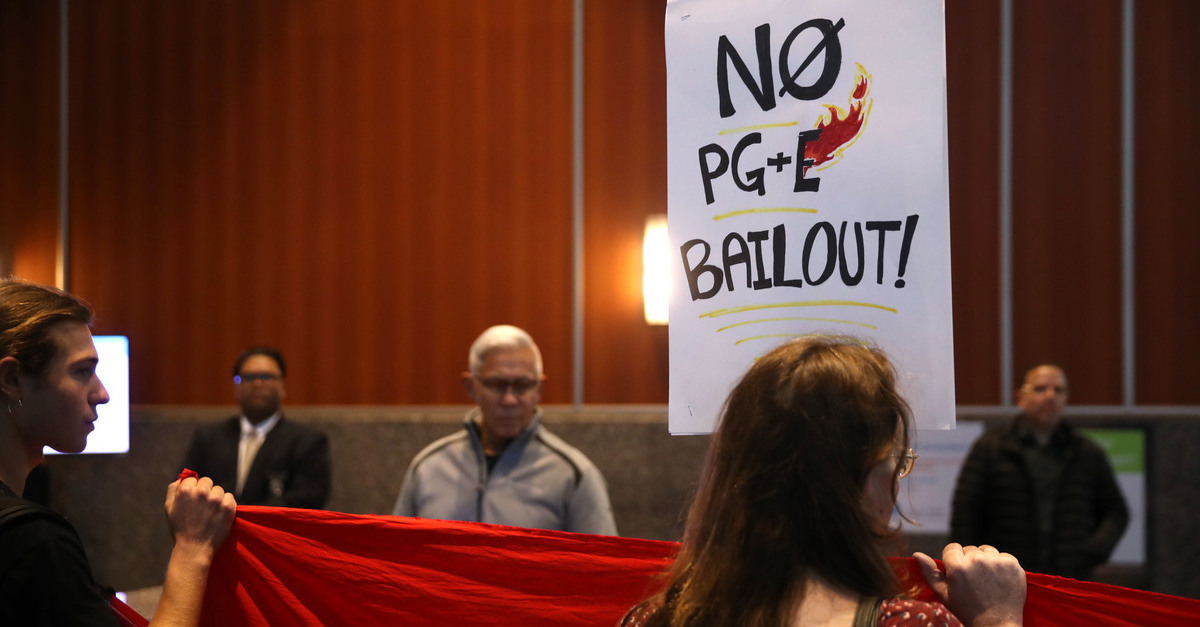
Pacific Gas & Electric Co. (PG&E) is the largest utility company in the nation. At least it is for now. On Tuesday morning, the energy behemoth filed for Chapter 11 bankruptcy protections in an effort to insulate itself from massive damages likely to be incurred over its potential culpability for a recent spate of highly destructive California wildfires.
The bankruptcy move has been rumored about for some time. By filing under Chapter 11 of the bankruptcy code, PG&E is officially undergoing what’s known as a “reorganization” and will therefore be allowed to keep up operations as it attempts to reorganize its finances. According to the Internal Revenue Service, “[f]ailure to successfully reorganize and get a debt repayment plan approved may result in a Chapter 11 case being converted to a liquidating Chapter 7.”
Per the San Francisco Chronicle, PG&E’s move is likely to result in higher energy prices for California consumers.
In announcing their bankruptcy protection scheme, PG&E cited hundreds of civil lawsuits filed by victims from wildfires that occurred in 2017 and 2018. Those lawsuits will now be consolidated into bankruptcy court where victims will likely receive less money than had their legal actions played out in regular state or federal civil courts.
Famous consumer activist Erin Brockovich previously urged California lawmakers not to let PG&E begin bankruptcy proceedings–precisely because of the wildfire victims pay-out issue. Under the terms of bankruptcy court, wildfire victims won’t be able to extract punitive damages and will have to wait in line behind bondholders and other creditors owed money by the energy giant.
Brockovich previously went toe-to-toe with PG&E during the 1990s and extracted a settlement of some $333 million from the company over their alleged contamination of California’s drinking water–the largest settlement ever paid out in such a lawsuit in U.S. history at that time. Golden State legislators appear to have ignored her advice.
Still looming for PG&E, however, are multiple criminal inquiries and potential criminal charges.
As Law&Crime previously reported, California Attorney General Xavier Becerra turned heads when he noted late last year that PG&E could be tried for murder over their potential culpability for the deaths of 86 people during the deadly Camp Fire in Butte County, California last November. Becerra suggested that PG&E’s faulty electrical infrastructure was the reason behind that deadly blaze.
Days later, Assistant U.S. Attorneys Hallie Mitchell Hoffman and Jeff Schenk told a federal judge that PG&E may have violated its probation if the company’s mismanagement led to any of California’s recent wildfires.
“If PG&E’s reckless operation or maintenance of its power lines started a wildfire, PG&E may have violated a condition of its probation,” the federal prosecutors noted. “As with all criminal defendants on probation, if PG&E is alleged to have violated a condition of probation, the district court must resolve two issues at a revocation hearing: (1) whether a violation of probation occurred, and (2) whether probation should be revoked as a result.”
[Image via Justin Sullivan/Getty Images]